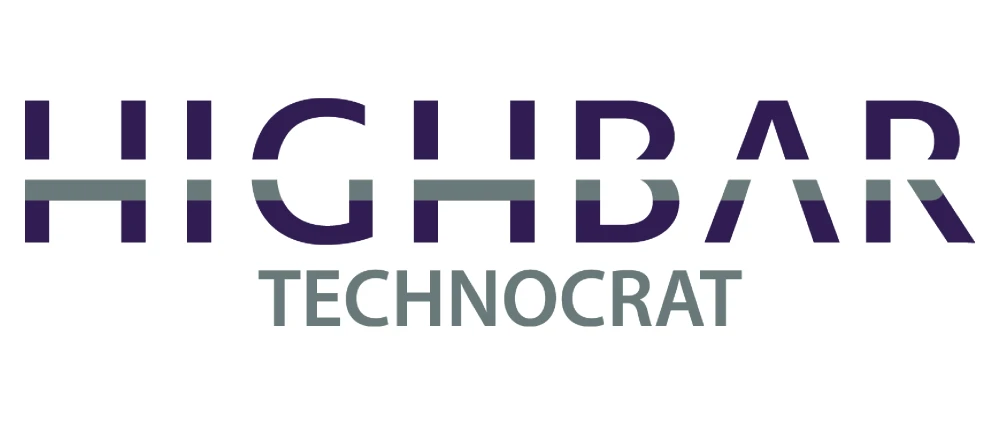
Meta Description: Fuel your business evolution with digital technology transformation. Harness the power of tech solutions for a competitive edge!
As the global economy evolves, organizations need to adapt to remain competitive. Digitization solutions play a pivotal role in reshaping business processes. By digitizing paper-based documents and manual workflows, organizations can reduce errors and improve efficiency. Digital technology transformation has become the cornerstone of modern business strategy.
You will realize that businesses are continually seeking innovative ways to adapt to the digital age and drive growth. As of 2022, approximately 90% of respondents said their organization had a major cloud implementation. Simultaneously, 5% of respondents were testing the deployment of quantum computing. Spending on digital transformation was to exceed USD 1.6 trillion by 2022 and is expected to reach USD 3.4 trillion by 2026 at the global level.
Let’s explore the profound impact of digital technology transformation on businesses, understand the role of digitization and technology solutions, and examine the future trends that will shape the digital landscape.
Understanding Digital Technology Transformation
Digital technology transformation refers to the process of integrating digital technologies into all aspects of a business to fundamentally change how it operates and delivers value to customers. It’s not just about adopting new tools; it’s a holistic reimagining of business processes and models. The impact of digital technology is undeniable. It results in increased efficiency, enhanced customer experiences and reduced costs.
Several drivers push organizations toward digital transformation. These include changing customer expectations, competitive pressures, and the need to stay relevant in the market. Organizations must adapt to these factors to remain viable. Businesses are persistently exploring innovative ways to adapt to the digital age and drive growth.
In 2022, the most popular techniques opted for by organizations to strategize digital transformation plans are to reuse and repurpose current solutions and extend them with cloud. In a survey, 45 percent of respondents’ organizations have an existing focus on modernization or a mixed modernization approach.
The Role of Digitization Solutions
Digitization solutions involve converting analog information into digital formats. This includes processes such as document scanning, data capture, and digital archiving. It enables organizations to store, manage, and access information more efficiently. Digitization solutions streamline operations by reducing manual data entry, improving data accuracy, and enabling quick data retrieval. For instance, in the healthcare sector, digitization solutions have improved patient record management, reduced errors, and streamlined billing processes. This not only enhances patient care but also reduces costs for healthcare providers.
Leveraging Technology Solutions
Technology solutions encompass a wide array of tools and strategies that organizations use to enhance their operations and offer better services. This includes implementing ERP systems, CRM software, and cloud computing. Technology solutions enable businesses to personalize customer interactions, anticipate needs, and provide seamless services. Amazon’s recommendation system, powered by AI, is a prime example of enhancing the customer experience through technology.
Take, for example, a manufacturing company that implemented an ERP system. This system streamlined production, reduced lead times, and improved order accuracy. The result? Increased customer satisfaction and higher revenues.
Integrating Digital Technology Transformation
Successful digital transformation requires a well-defined strategy. It’s essential to align technology initiatives with business objectives, secure stakeholder buy-in, and have a clear roadmap for implementation. However, the challenges during implementation are common. These include resistance to change, integration issues, and data security concerns. Addressing these challenges head-on is crucial for a smooth transformation.
Effective leadership and a culture of innovation are essential for driving digital transformation. Leaders must inspire their teams and create an environment where employees are encouraged to embrace change and innovation.
Measuring the Impact
Measuring the impact of digital transformation is essential. The key performance indicators (KPIs) may include increased revenue, reduced operational costs, improved customer satisfaction, and faster time-to-market. Calculating ROI is crucial to justify the investment in digital transformation. Organizations can measure ROI by comparing the benefits realized against the costs incurred. In many cases, the benefits significantly outweigh the costs.
Since digital transformation is a continuous journey of improvement and adaptation, businesses need to continuously evaluate their digital strategies, adapt to changing market conditions, and explore new technologies to stay competitive.
Future Trends in Digital Technology Transformation
Emerging technologies like augmented reality, virtual reality, and 5G will play a significant role in shaping the digital landscape. These technologies will create new opportunities for businesses to engage with customers. Artificial intelligence (AI), the Internet of Things (IoT), and blockchain are already revolutionizing industries. AI-driven automation, IoT-connected devices, and blockchain-based security will be integral to future digital transformation strategies.
Use Cases of Digital Transformation Across Different Industries
Here are a few use cases that demonstrate how digital transformation is not limited to a specific industry but has far-reaching effects on how businesses operate, improving efficiency, enhancing customer experiences, and opening up new opportunities for innovation.
Healthcare: Electronic Health Records (EHR)
Digital transformation has revolutionized the healthcare industry through the implementation of Electronic Health Records (EHR). EHRs are digital versions of patients’ paper medical records, containing their complete health history, treatment plans, test results, and more. The benefits include:
- Efficient Data Management: EHRs allow healthcare providers to efficiently store, access, and share patient information, reducing administrative burdens and errors.
- Improved Patient Care: Real-time access to patient data enables healthcare professionals to make better-informed decisions, leading to more accurate diagnoses and treatment.
- Telemedicine Integration: EHRs support telemedicine by enabling remote access to patient records, making virtual healthcare consultations more effective.
Manufacturing: Industry 4.0
The manufacturing sector is undergoing a profound transformation, often referred to as Industry 4.0. It involves the integration of digital technologies, such as the Internet of Things (IoT), automation, and data analytics, into the manufacturing process. Key use cases include:
- Predictive Maintenance: Sensors in machinery collect data to predict when equipment will require maintenance, reducing downtime and maintenance costs.
- Smart Factories: Factories are becoming increasingly connected, with machines communicating with each other to optimize production, reduce waste, and enhance quality control.
- Supply Chain Visibility: Digital transformation allows manufacturers to have real-time visibility into their supply chain, optimizing inventory management and ensuring just-in-time deliveries.
Retail: Online Shopping and Personalization
Digital transformation has reshaped the retail industry, particularly with the rise of e-commerce and personalized shopping experiences. Key use cases include:
- E-Commerce Platforms: Retailers have adopted online sales channels, allowing customers to shop from the comfort of their homes and making it easier to reach a global customer base.
- Personalization: Using data analytics and AI, retailers can offer personalized product recommendations, tailored marketing, and a customized shopping experience for each customer.
- Inventory Management: Advanced inventory management systems, aided by digital transformation, help retailers optimize stock levels, reduce overstock and understock situations, and minimize losses due to spoilage or obsolescence.
Conclusion
In short, digital technology transformation is a necessity for businesses looking to thrive in the modern economy. Embracing digitization and technology solutions is the path to staying relevant and competitive. As technology continues to evolve, organizations that adapt and innovate will be the ones at the forefront of the digital revolution. The future belongs to those who understand that technology is the driving force behind business success in the digital age. it’s crucial for businesses to be at the forefront of innovation. The statistics mentioned in the blog also demonstrate the urgency and relevance of this transformation.
Do you also want to leverage the digital technology transformation approach to have an impact on your business? Contact our seasoned experts here for customized solutions.




